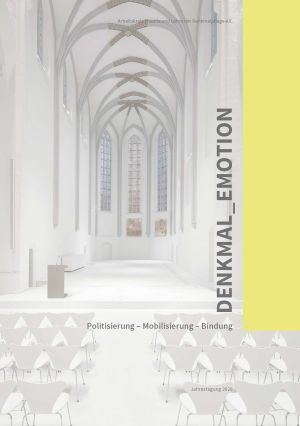Zitationsvorschlag
Veröffentlicht
Einfühlung und Empathie
Die Renaissance eines Konzepts und sein Bezug zur Denkmalpflege
Empathy enjoys great popularity as a positively-connotated concept suggesting mutual understanding. A contributing factor in this is the assumption that through empathy, it is possible to overcome social boundaries such as race, class and gender. Seen against this background, the concept also holds interest for scholarship in the area of Heritage Studies, as when considering the extent to which museums and sites of memory, for example, can be used as media for fostering empathy with the fates of others and thereby effecting a reassessment of visitors’ own positions. While the term empathy with its social dimension has thus gained significance in contemporary social and cultural studies, at the time of its emergence at the turn of the last century, it was initially a concept shaped by the aesthetics of perception. The essay traces the developmental history of this term with its various shifts in meaning, thereby not only revealing the conceptual parallels that exist between it and early theories of conservation, but also inquiring after the potential uses of its different variations for heritage conservation today. Though many scholars have meanwhile adopted a critical attitude toward what they see as a naïvely positive understanding of the social potential of empathy, it still raises questions of the possible potential that a recourse to perceptual aesthetics might hold for research into the emotional and aesthetic modes of meaning ascription that are at work in processes of heritage making.








